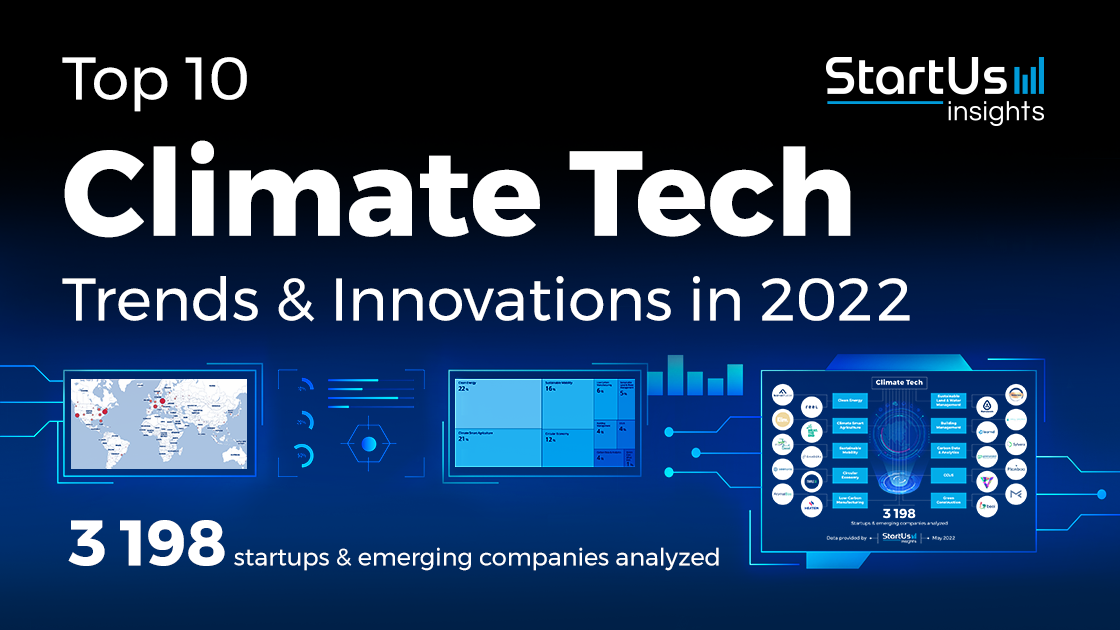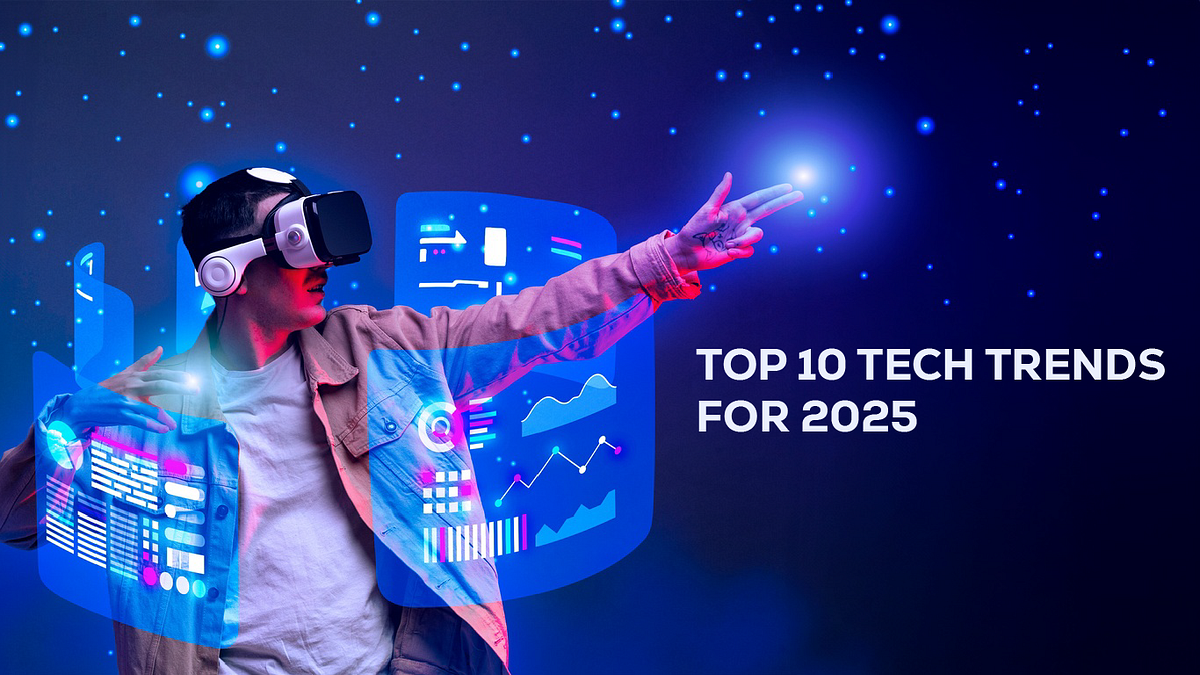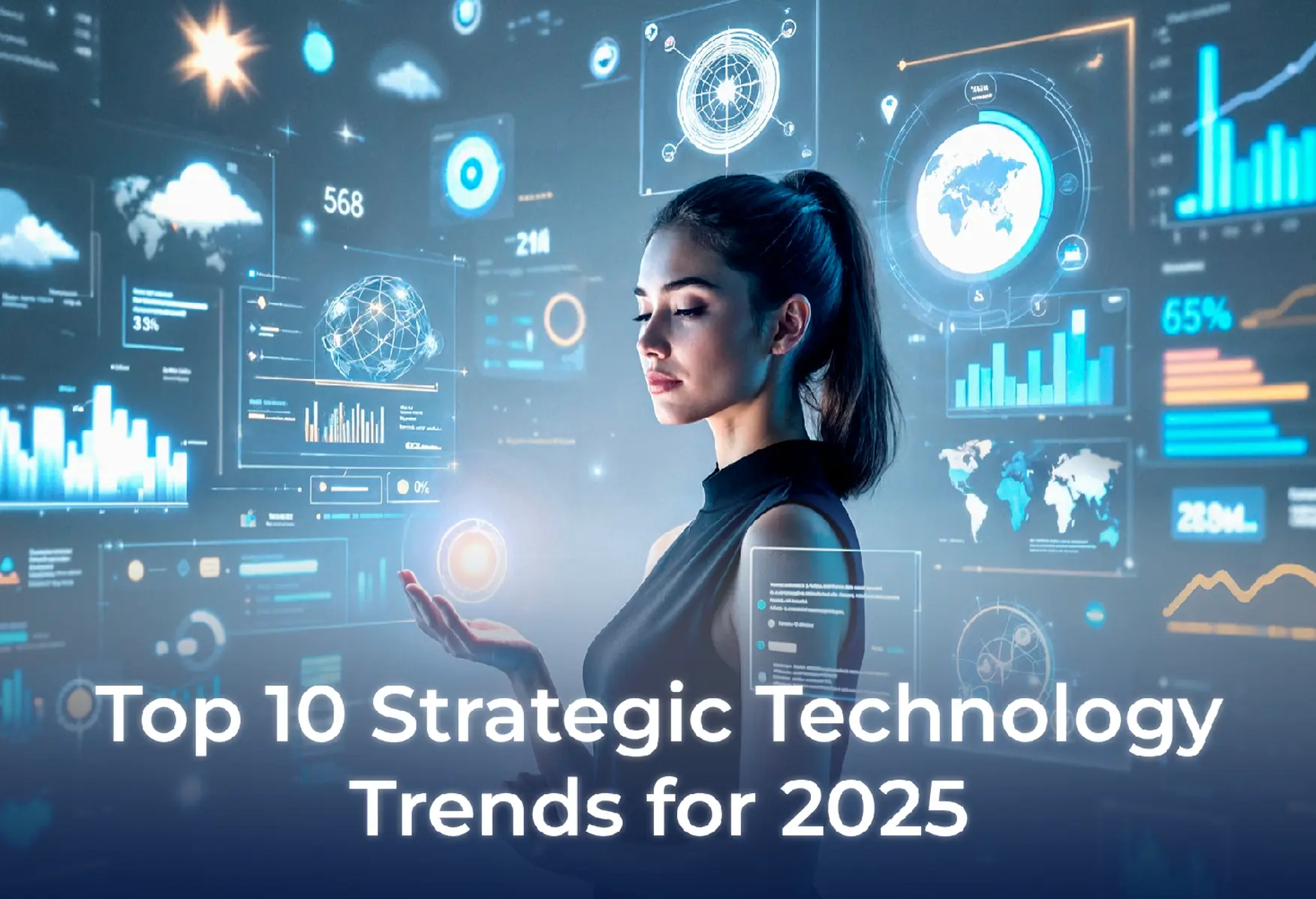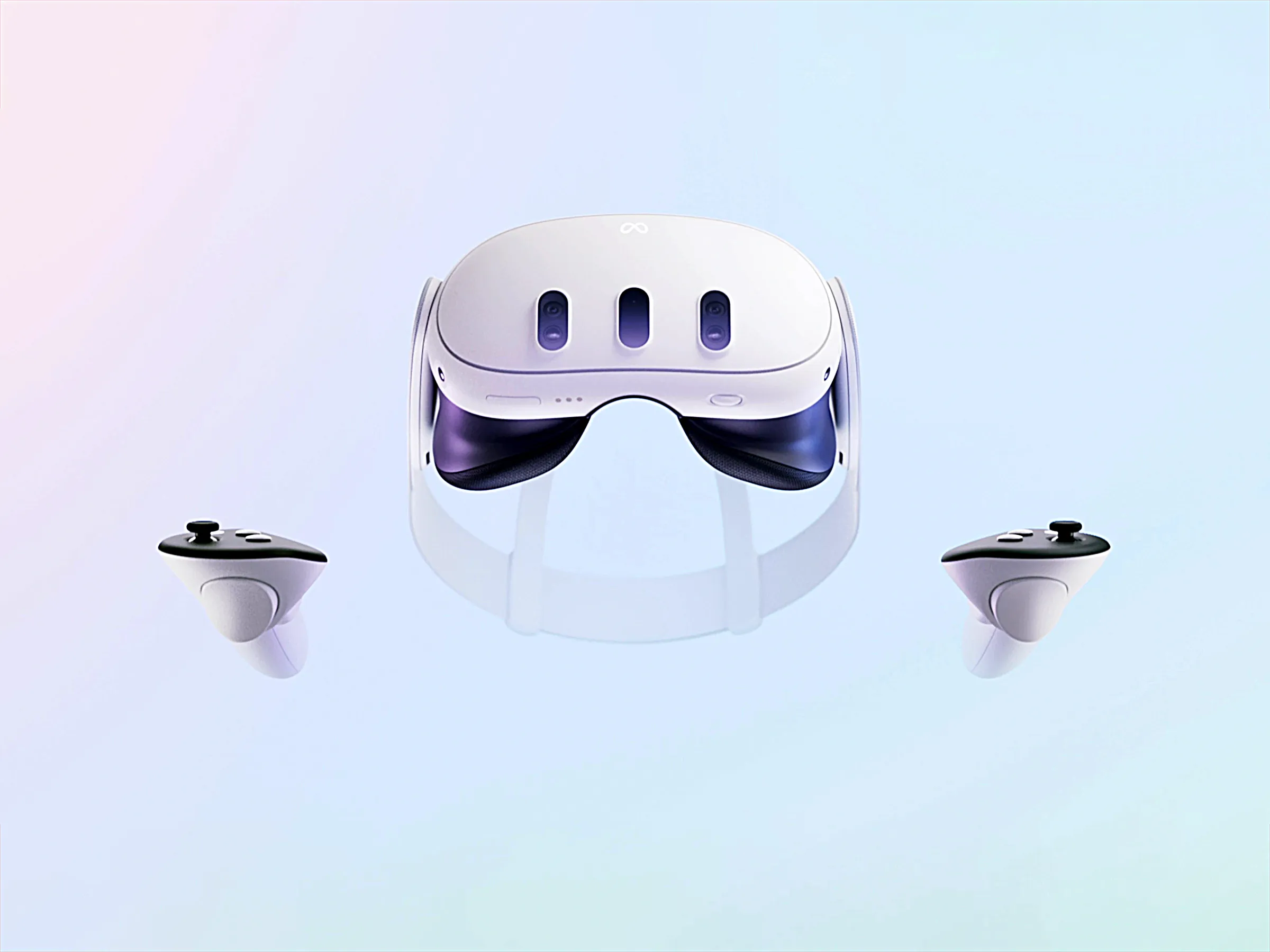“`html
The Top Technology Trends Shaping 2025: An Essential Guide
Estimated reading time: 8 minutes
Key Takeaways
- Artificial Intelligence (AI) continues its dominance, with advanced applications revolutionizing operations, customer service, and cybersecurity.
- Wearable technology is evolving beyond fitness tracking into sophisticated health monitoring and integrated augmented reality experiences.
- The Metaverse and Extended Reality (XR) are maturing, finding practical business applications in training, collaboration, and digital twins.
- Sustainable technology is a growing imperative, driving innovation in energy efficiency and environmental impact mitigation.
- Cybersecurity remains paramount, with AI playing a crucial role in advanced threat detection and response.
- Quantum computing is moving from theoretical to practical, poised to solve previously intractable problems.
- Edge computing is gaining traction, enabling faster data processing and more responsive services.
- Autonomous systems are expanding their reach across various industries, promising increased efficiency and reduced human error.
- The synergy of these trends is accelerating innovation and creating new opportunities.
- Staying informed and adaptable is key to navigating the evolving technological landscape.
Table of Contents
- The Top Technology Trends Shaping 2025: An Essential Guide
- Key Takeaways
- The AI Revolution – The Foundation of 2025 Technology
- The Future of Wearables – Beyond the Wrist
- Other Key Revolutionary Tech Trends for 2025
- The Synergy of Innovation – How Trends Interconnect
- Navigating the Future – Your Essential Guide to 2025 Tech
- Frequently Asked Questions
The AI Revolution – The Foundation of 2025 Technology
The technological landscape is being reshaped at an unprecedented pace, and at its core lies the omnipresent force of Artificial Intelligence. As we look towards 2025, the top technology trends 2025 are heavily influenced by the ongoing AI impact on technology 2025. AI is no longer just a buzzword; it’s the foundational pillar that supports and amplifies many other revolutionary tech trends 2025.

AI in Operations & Efficiency
Businesses are leveraging sophisticated AI in back-office operations to streamline legacy systems and automate a myriad of tasks. This includes everything from transaction processing and reconciliation to compliance checks and advanced fraud detection. Financial institutions, for instance, are reporting *remarkable improvements*, with AI-powered systems achieving straight-through-processing of checks with accuracy rates exceeding 99%. Furthermore, AI-driven fraud detection is now identifying an impressive 95% of fraudulent checks, significantly reducing losses. This level of automation allows for real-time automated decision-making across diverse business processes, from supply chain logistics to dynamic marketing campaigns, leading to faster responses and optimized operational efficiency.
AI in Customer Facing Roles & Planning
Beyond the back office, AI is transforming how businesses interact with their customers. The rise of generative AI for financial planning and advice is a prime example. By employing sophisticated generative models and advanced chatbots, financial services are now able to offer highly personalized financial advice, craft tailored investment strategies, and manage customer inquiries with a level of depth and capability previously unseen. This personalization enhances customer engagement and satisfaction.

Ethical and Sustainable AI
As AI becomes more integrated into our lives, the importance of responsible AI deployment cannot be overstated. Companies are increasingly aware that ethical considerations, transparency, and robust security measures are crucial. Neglecting these aspects can lead to significant reputational damage and costly regulatory penalties. Simultaneously, the concept of sustainable AI is gaining momentum. This involves focusing on minimizing the environmental footprint of AI, such as powering data centers with renewable energy sources and utilizing AI to optimize sustainability efforts across various industries.

AI in Security
In the ever-evolving digital landscape, AI in cybersecurity and defense is a critical trend. Advanced AI algorithms are now adept at detecting subtle anomalies, automating threat responses in real-time, and enhancing user training through sophisticated simulated attacks. This proactive approach is vital in staying ahead of increasingly sophisticated cyber threats and is a core component of the top technology trends 2025.

The Future of Wearables – Beyond the Wrist
The evolution of wearable technology is one of the most exciting developments in personal tech. The future of wearables 2025 sees these devices moving far beyond basic fitness trackers to become sophisticated health and communication hubs.
Advanced Health Monitoring
Wearables are increasingly capable of performing advanced health monitoring. They can track vital signs with greater accuracy, detect early indicators of illness, and even predict potential health events. This revolutionizes preventive healthcare and paves the way for truly personalized medical interventions.

Augmented Reality Integration
A significant leap forward is the integration of Augmented Reality (AR) into wearable devices. AR-enabled wearables are set to transform user experiences across various sectors, from immersive gaming and interactive education to advanced professional training. As per Gartner reports, spatial computing is indeed revolutionizing industries with faster training times and more immersive learning environments.

Smart Clothing
The next frontier in wearables is undoubtedly smart clothing. Imagine fabrics that can monitor your biometrics, adapt to environmental conditions, or even provide haptic feedback. This fusion of fashion and technology promises a new era of integrated personal devices, aligning with the broader essential guide to 2025 tech.
Other Key Revolutionary Tech Trends for 2025
Beyond AI and wearables, several other revolutionary tech trends 2025 are poised to make a significant impact.
Metaverse and Extended Reality (XR)
The concepts of the Metaverse and Extended Reality (XR) are maturing from niche interests into mainstream platforms. Their business applications are becoming increasingly diverse, including virtual meetings, immersive training simulations, and the creation of sophisticated digital twins for industrial applications. The synergy between AI and XR is particularly noteworthy, enabling more interactive and engaging experiences and facilitating seamless remote collaboration.

Sustainable Technology
Sustainable Technology is no longer a niche consideration but a primary driver of innovation across industries. Examples range from renewable energy-powered data centers to AI-driven optimization of resource management. As highlighted by McKinsey insights, sustainable tech is projected to generate trillions in new economic opportunities.
Cybersecurity Advancements
In response to increasingly sophisticated threats, cybersecurity is seeing significant advancements. AI-powered security systems are at the forefront, offering real-time threat detection and automated mitigation. Additionally, privacy-first technologies are crucial for data protection and regulatory compliance in the evolving digital landscape.

Quantum Computing (Emerging Impact)
Quantum Computing is transitioning from the research lab to practical applications. Its ability to solve complex problems exponentially faster than classical computers opens doors to breakthroughs in drug discovery, battery technology, and materials science.

Edge Computing
Edge Computing is gaining significant traction by processing data closer to its source. This enables faster, more reliable services, especially critical for IoT devices and real-time applications. It’s predicted that by 2025, as predicted by industry analysts, 75% of enterprise data will be processed at the edge, supported by the rollout of 5G and IoT technologies.

Autonomous Systems
The deployment of Autonomous Systems is expanding beyond self-driving vehicles to encompass drones, robots, and smart infrastructure. These systems are expected to contribute trillions to the global economy by enhancing efficiency and minimizing human error, as noted in Forbes reports.

The Synergy of Innovation – How Trends Interconnect
The true power of the top technology trends 2025 lies not in their individual impact, but in their convergence and interplay. Innovation is accelerating at an exponential rate precisely because these trends are not developing in isolation.
Consider how AI enhances the capabilities of wearables, making them more intuitive and predictive. Extended Reality (XR) platforms, in turn, provide new and immersive environments for AI-driven experiences. The advancements in quantum computing are poised to unlock entirely new potentials for AI algorithms and cybersecurity solutions. This constant feedback loop and mutual enhancement are what drive the rapid progress we are witnessing.

This synergy creates a virtuous cycle of innovation, opening up vast opportunities for businesses and individuals alike. Understanding these interconnections is crucial for anyone looking to stay ahead in the rapidly evolving tech landscape.
Navigating the Future – Your Essential Guide to 2025 Tech
As we’ve explored the exciting world of essential guide to 2025 tech, it’s clear that staying informed and adaptable is paramount. Here are some actionable strategies to help you navigate this dynamic future and leverage these revolutionary tech trends 2025.
Strategies for Success
- Invest in AI and Automation: For businesses, prioritizing investment in AI and automation technologies is no longer optional; it’s essential for maintaining a competitive edge and driving efficiency.
- Prioritize Sustainability and Ethics: Integrate sustainable practices and ethical considerations into your technology adoption strategy. This not only addresses global concerns but also builds trust and long-term value.
- Stay Informed and Adaptable: Continuously monitor emerging trends and understand their potential impact. Cultivate a mindset of continuous learning and be prepared to adapt your strategies as the technological landscape evolves.
- Build Resilient Cybersecurity Frameworks: With the increasing sophistication of threats, robust and adaptable cybersecurity measures are non-negotiable. Leverage AI and best practices to protect your assets and data.

Frequently Asked Questions
Q1: How is AI changing business operations in 2025?
A1: AI is revolutionizing business operations by automating tasks, enabling real-time decision-making, and improving efficiency across various functions, from back-office processes to customer interactions. For more details, see AI impact on business operations.
Q2: What is the most significant trend in wearable technology for 2025?
A2: The most significant trend is the evolution of wearables from simple trackers to sophisticated health monitoring devices and integrated AR experiences. Explore more about the future of wearables 2025.
Q3: How can businesses prepare for the technological shifts of 2025?
A3: Businesses can prepare by investing in AI and automation, prioritizing sustainable and ethical tech practices, staying informed about emerging trends, and building strong cybersecurity frameworks. This is all part of an essential guide to 2025 tech.
Q4: What are some of the key revolutionary tech trends to watch in 2025?
A4: Key trends include advancements in AI, the evolution of wearables, the maturation of the Metaverse and XR, the rise of sustainable technology, and progress in quantum computing and edge computing. These are all part of the key technology trends 2025.
Q5: What is the role of AI in cybersecurity for 2025?
A5: AI is playing a crucial role in detecting anomalies, automating threat responses, and enhancing user training to combat increasingly sophisticated cyber threats, as highlighted in analyses of UK cybersecurity market trends 2025.
“`





